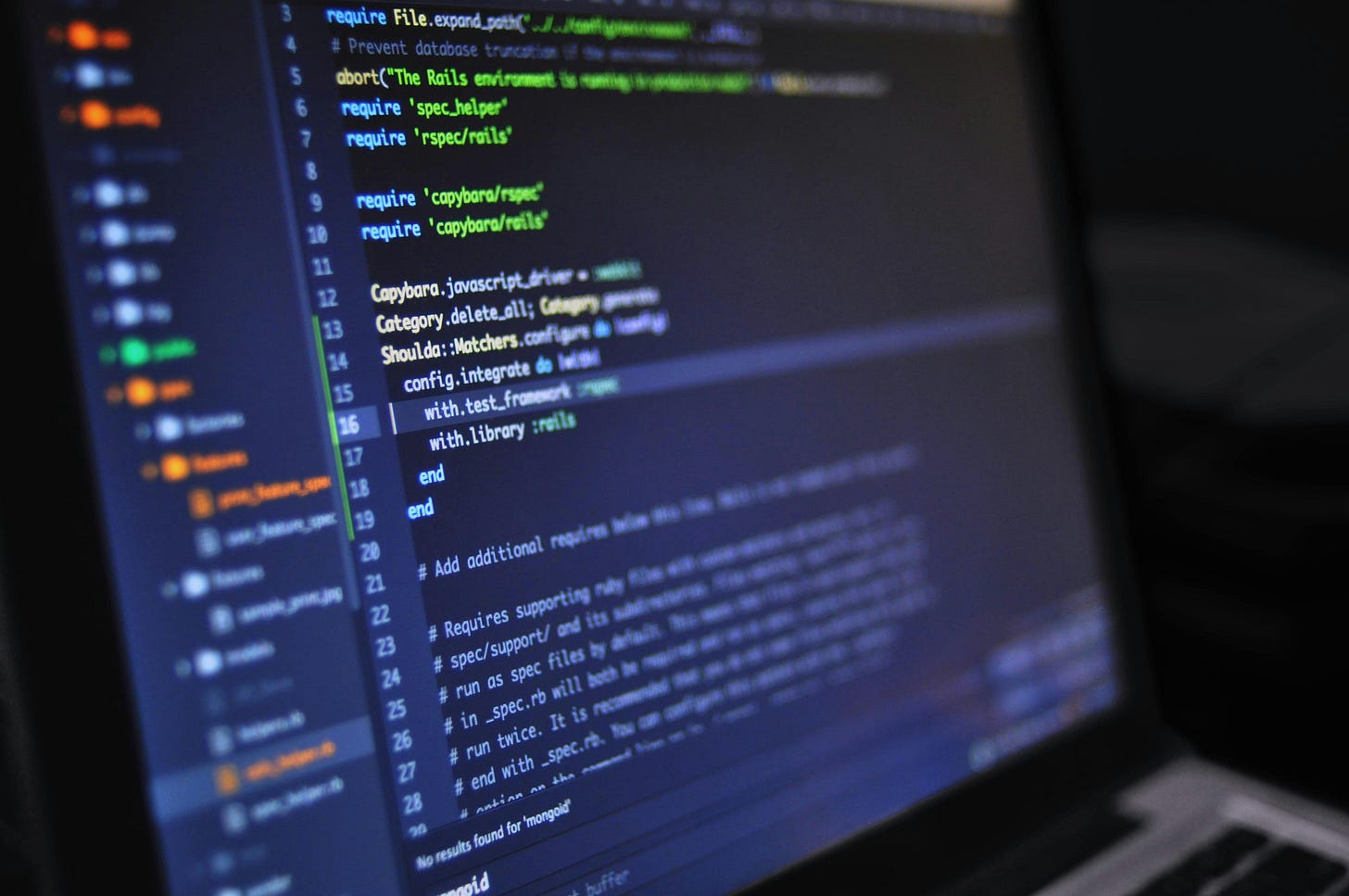How to learn to code in 2025
And how to get better
Learning how to code has never been easier.
I first learned how to code about eight years ago when I was in my freshman year of college.
Back then the strategy was to read some books, try to find some tutorials online, and then figure out everything else on your own.
In today’s world, there are tons of courses, free content, and AI tools to help you learn.
Let’s go over how I would learn to code and how you can improve your skills if you already know how.
1. Focus on Fundamentals
Technology is always changing especially with the boom in AI over the past two years. If you look at something like Moore’s Law from 1975 it still is holding true to this day.
The best thing you can do is take the time to learn the fundamentals of coding.
Learn how to write good code, how to manage your coding environment, how different lines of code work, what different errors mean, etc.
Doing this will work wonders for you.
When I first started I wanted to do machine learning. I tried to dive in before I actually understood how to code. The first bug I hit I spent more time trying to understand the error message than I did writing code to train and deploy models.
Understanding these core concepts is crucial for several reasons:
Adaptability: A strong grasp of fundamentals allows you to adapt to new languages and technologies more easily. Languages may evolve, but the underlying logic and structures often stay the same.
Problem-Solving Skills: Fundamental knowledge enhances your ability to troubleshoot and solve complex problems, a critical skill in any coding endeavor.
Efficient Learning: With a solid foundation, you can learn advanced topics more efficiently, as you can relate new information to what you already understand.
My recommendation is to take a course in a language/topic you are interested in to learn the fundamentals and keep it interesting. This is whether you are learning how to code or wanting to learn a new skill in programming.
If you want to do frontend development then take a development course.
If you like sports analytics take a course in that area.
There’s plenty of courses around a million topics so find one that interests you and use that to learn fundamentals.
2. Leverage AI
Artificial intelligence has made significant strides and has become an invaluable tool in the learning process.
I use ChatGPT every single day and use different AI assistants to help me write code.
It’s weird to think of a world without them, but they help so much when learning new skills, understanding how code works, or fixing issues with your code.
Here's how you can harness AI to accelerate your coding education:
Personalized Learning Paths: AI-driven platforms can assess your current skill level and tailor learning materials to your needs, optimizing your study time.
Instant Feedback: AI tutors and code analysis tools provide immediate feedback on your code, helping you learn from mistakes in real time.
Code Generation Assistance: AI can suggest code snippets or even generate code based on your descriptions, which is a great way to learn new patterns and best practices.
Examples of AI Tools:
Intelligent IDEs: Integrated Development Environments (IDEs) now come with AI capabilities that can predict your next line of code, highlight potential errors, and offer optimization suggestions.
AI Tutoring Systems: Platforms equipped with AI tutors can simulate one-on-one teaching experiences, adapting to your learning pace and style.
Chatbot Assistants: AI chatbots can answer your coding questions anytime, providing explanations and resources.
Best Practices:
Use AI tools as a supplement, not a crutch. Ensure you're actively writing and understanding code rather than letting AI do all the work. If you learned the fundamentals then AI will enhance your ability to write code.
Critical Thinking: Always review and understand AI-generated suggestions to ensure they meet your specific needs and are optimized for your use case.
Sometimes an AI tool can “hallucinate” so make sure you aren’t using bad code.
3. Project-Based Learning
One of the biggest reasons people stop coding or never learn is because they give up and aren’t consistent.
The way to combat that is through project-based learning which allows you to apply what you've learned in real-world scenarios and keep the learning interesting at the same time.
Benefits of Project-Based Learning:
Practical Application: Working on projects helps you understand how coding concepts are used in actual software development.
Portfolio Building: Projects provide tangible evidence of your skills, which can be showcased to potential employers or collaborators.
Deep Learning: Tackling real problems enhances retention and understanding far more than passive learning methods.
Getting Started with Projects:
Start Small: Begin with manageable projects like building a personal website or a simple app.
Collaborate: Join open-source projects or coding groups to work with others, gaining teamwork experience.
Iterate and Improve: Revisit your projects to optimize and add new features, reinforcing a growth mindset.
Project Ideas:
Web Applications: Create a dynamic website using HTML, CSS, and JavaScript frameworks.
Data Science: Develop a model that can predict the outcome of a sporting event
Automation Scripts: Write a script to use AI to read and summarize your email inbox.
Learning to code in 2025 should be at the top of everyone’s list who wants to work in data, technology, or software.
It’s truly an eye-opener on what is possible once you see what you can do with it and what you can create.



